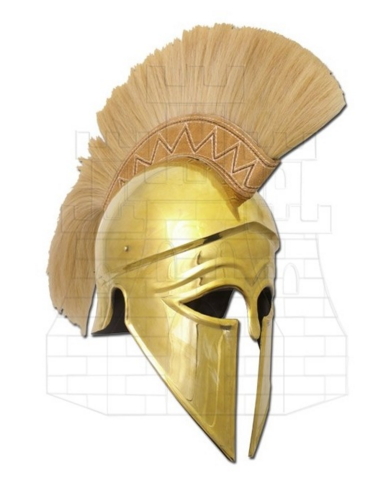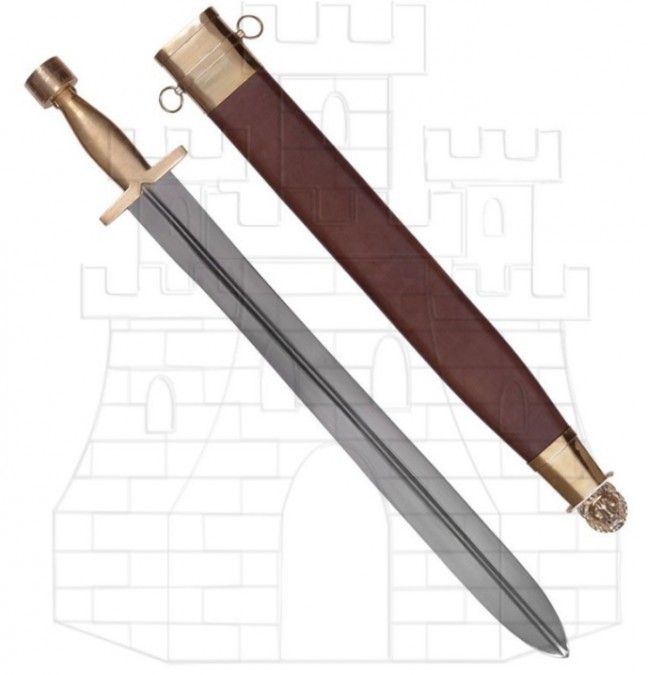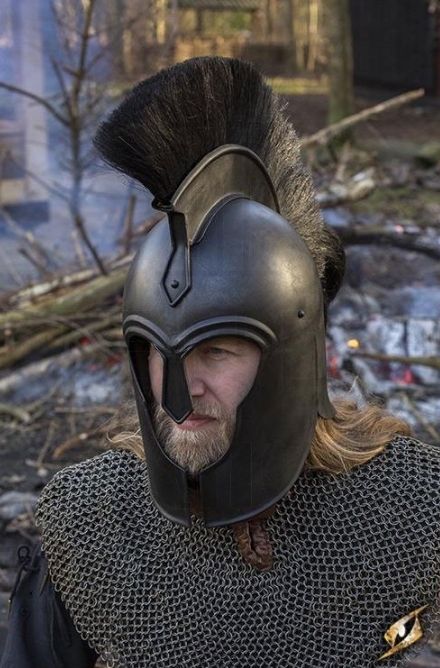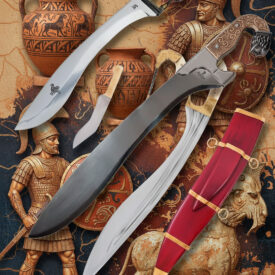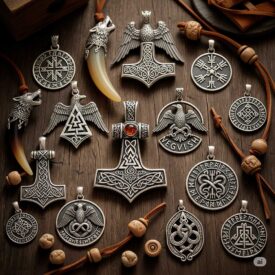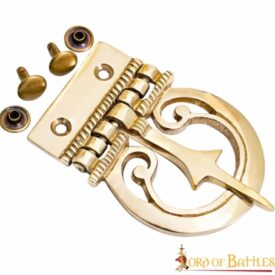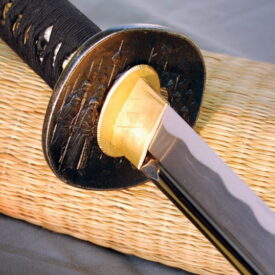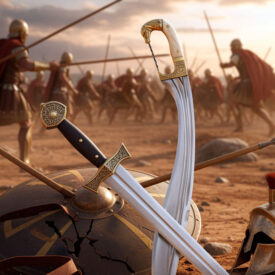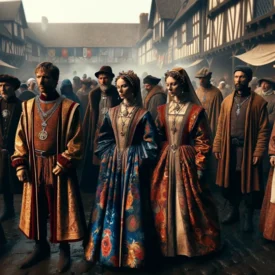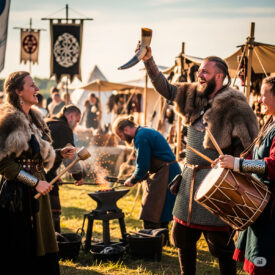The history of Spain is deeply intertwined with that of the ancient civilizations that colonized its coasts. Among them, the Greeks, who arrived on the Iberian Peninsula between the 7th and 3rd centuries BC, left an indelible cultural mark. Although their interests were mainly commercial and they did not venture far inland, they founded city-states such as Emporion (today’s Ampurias) and spread valuable knowledge that still resonates in our traditions. Greek influence was not limited to trade, industry and agriculture, with the introduction of olive and vine cultivation, but they also bequeathed to us the “arts of the mind”: theatre, poetry and philosophy. These contributions shaped the way of life, thought and, above all, the festivities we celebrate today.
The Cult of Dionysus and the Grape Harvest Festivals: A Greek Heritage
One of the most tangible legacies of Hellenic culture is the festivals related to wine. The grape harvest festivals, which we celebrate today with such fervour in Spain, have their origins in the Greek cult of Dionysus, the god of fertility, vegetation and wine production. To the Romans this god was known as Bacchus, and mythology tells that he himself taught the Greek king Icarius the art of vine cultivation. In Homeric times, renowned vine-growers were already entertaining nearby villages with great banquets and celebrations, a practice that conferred power and prestige. The Greeks, possibly importing techniques from Egypt, were the great spreaders of viticulture across the European Mediterranean, carrying their festive traditions to their colonies.
The Grape Harvest in Spain: A Living Hellenic Legacy
Spain, with its deeply rooted wine culture, turns into a great celebration from mid-August well into October. The grape harvest becomes a festival where agriculture, economy and folklore intertwine. Seeing the vast vineyards full of ripe fruit evokes months of hard work, culminating in an act of gratitude to the land. The ritual of grape stomping, an ancestral tradition, symbolizes thanks for what nature gives us. This is a time to celebrate, to share and to taste the exquisite wines this country produces.
The Olive Tree and Its Celebrations: Another Greek Contribution to Spanish Culture
Alongside viticulture, the Greeks also introduced olive cultivation to the peninsula, forever transforming local agriculture and cuisine. Today, festivals and celebrations centred on olive groves and olive oil are public and social events that reinforce traditions and community ties. The start of the olive season, the extraction of the first oil of the year or the closing of the season are milestones celebrated in different parts of Spain throughout the year, especially from March to September. These festivities, like the grape harvest ones, usually include:
- Oil tastings, to appreciate the qualities of the new oils.
- Medieval markets, recreating the atmosphere of past eras.
- Folklore demonstrations, with traditional dances and music.
- Agricultural activities, such as simulated olive picking.
Spartan and Greek Festivals: Historical Reenactment and Military Tradition
Beyond agricultural festivities, Greek influence is also evident in the fascination with its military history and heroes. Spartan and Greek festivals, historical reenactment events that are gaining popularity, transport us to the time of the hoplites and the brave warriors of Sparta. At these festivals, participants not only dress in Greek tunics and helmets, but also relive the disciplines, battles and social organisation of one of the most admired civilizations of Antiquity. These events are an opportunity to learn about history in a playful and exciting way, honouring figures such as Leonidas and the 300 Spartans.
The Hoplite’s Gear: A Symbol of Honour and Discipline
Historical reenactments would not be complete without the proper equipment. The Spartan hoplite was a heavy infantry soldier, and his clothing and weapons reflected his discipline and bravery. Each piece had a crucial role in the phalanx formation, a military tactic that made them almost invincible. Below is a brief description of the essential equipment:
| Component | Description | Main Function |
|---|---|---|
| Corinthian Helmet | A bronze helmet that covered almost the entire head, leaving only an opening for the eyes and mouth. | Maximum protection for the head and neck in close combat. |
| Shield (Aspis) | A large circular shield made of wood or bronze, often decorated with the city’s emblem. | Essential defence that protected the hoplite and his companion on the left in the phalanx. |
| Sword (Xiphos) | A short double-edged sword, ideal for close-quarters combat. | Secondary weapon for when the spear broke or combat became more confined. |
| Spear (Dory) | The hoplite’s primary weapon, about 2 metres long. | Main attacking weapon in the phalanx formation. |
Greek helmets
From intricate Corinthian designs to the simpler pilos helmets, Greek helmets were more than mere protection: they were symbols of status, identity and bravery on the battlefield.
Greek swords
Although the spear and shield were the main weapons of the hoplites, Greek swords were the last resort, the decisive tool in close combat that determined the outcome of battle.
Greek shields
The shield was not just a piece of equipment, it was the foundation of the phalanx formation. The hoplon, with its concave shape and robust design, joined warriors into an impregnable wall, making collective defence the greatest attack.
The beauty of these reenactments lies in the fact that they not only allow us to learn about weaponry and military tactics, but also immerse us in the mindset of the ancient Greeks: their deep sense of honour, discipline and sacrifice for their polis. Taking part in a Spartan festival is a way to pay tribute to one of the most influential civilizations in history, whose philosophy and military art continue to inspire to this day.
The importance of Greek culture in Spain remains alive in our festivities, from the ancient celebrations of the grape harvest and olive grove to modern historical reenactments that let us relive the glory of Spartan warriors. This cultural heritage testifies to the deep connection between our present and past civilizations, which left us not only agricultural products but also a rich tradition of celebration, art and thought. If you are passionate about history and want to experience a Greek or Spartan festival, feel free to explore all the accessories that will help you become an authentic hero of Antiquity.
VIEW GREEK SWORDS | VIEW GREEK AND SPARTAN HELMETS | VIEW GREEK SHIELDS

